Workplace Horror: An Intimate Look Into the Horror of the Mundane

Many of us spend our days in the workplace. While the jobs vary from person to person, most of us have to work away in some office or job site to afford to live. With that need to work to survive comes a creeping dread. What happens to us if we get fired? If I make a client upset? Or, if my coworker stabs me with a broken broom? All kinds of fears, great and small, swirl about in our minds over employment. These fears have lead to some interesting horror games that explore how work can unsettle and frighten us, exploring everyday fears through supernatural horrors and disturbing situations.
Stressed Out Co-Workers in Good Job!
Being scared about work sounds like a strange starting point for a horror game, but many developers have used our common workplace fears and anxieties to great effect. For instance, building onto something that feels safe and familiar can create instant connections with your player. Kathinka, developer of Good Job!, a game about killing a cheery coworker repeatedly, uses such an idea.
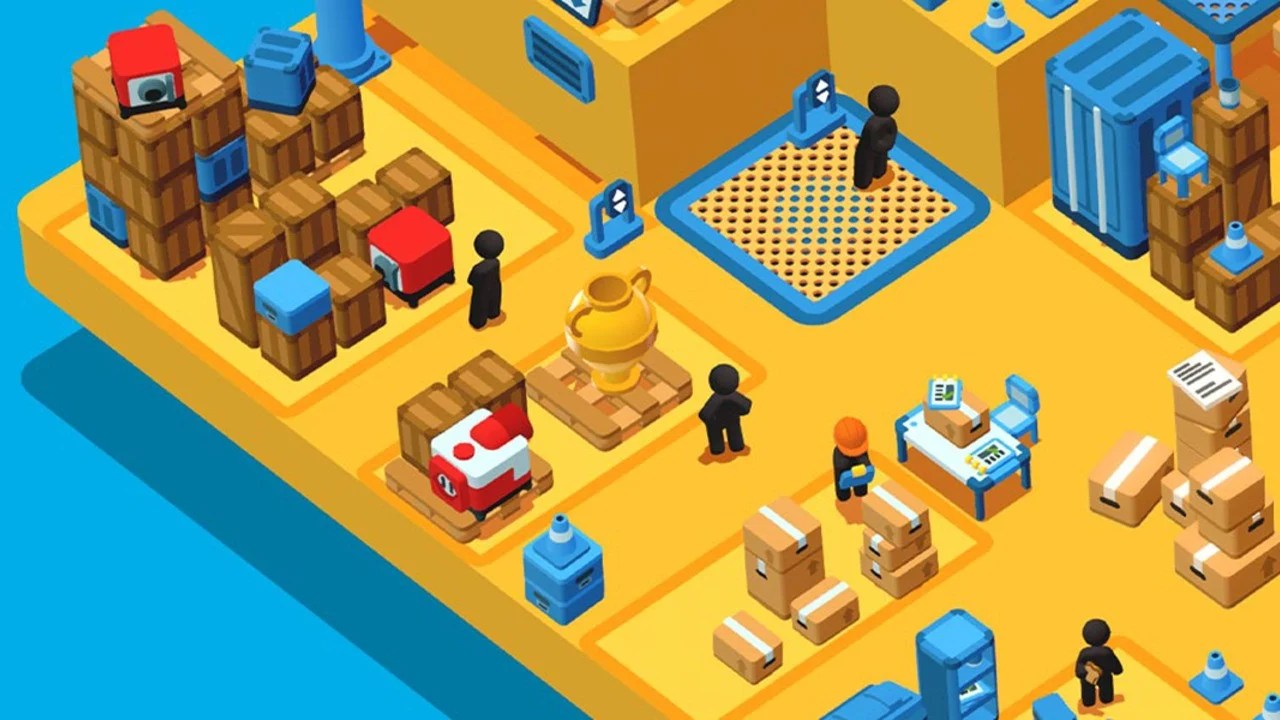
“I really enjoy games with horror elements taking place in environments that you normally wouldn’t really associate with horror,” said Kathinka. “Good examples for that would be the home, school, or office—a place I’m already familiar with and feel safe in (either because I can relax there or because I already have a settled routine with it).”
The workplace in Good Job! seems quiet and calm. You have an overly friendly worker and a quiet, shy one. Nobody is bullied. No one is even mean to one another. Everyone is just quietly working away. Then, suddenly, your coworker knocks something over and crushes you to death. No warning. Nothing. It’s a frightening thought: someone at work wants to kill you, and nothing indicates as much. Sure, you play the killer in Good Job!, but doing so might make you feel a little more worried at the workplace.
Liminal Horror In the Workplace
Other developers, like Jeremy Fischer, creator of Lancaster Leak – Crisis at Call Center, would also use the sense of the mundane at work to toy with player fears. “In office settings, the familiar becomes unsettling as mundane objects and everyday sounds take on sinister undertones,” he said.
Fischer added, “The flickering fluorescent lights cast long shadows down empty corridors, the hum of the photocopier echoes like distant whispers, and the creaking of swivel chairs punctuates the silence of deserted cubicles. In this environment, the horror lies not only in the supernatural but also in the psychological. The monotony of the 9-to-5 grind can uniquely be exploited as subtle environmental changes can freak players out. Was that door open the last time I walked past? I could have sworn that chair was angled differently…”
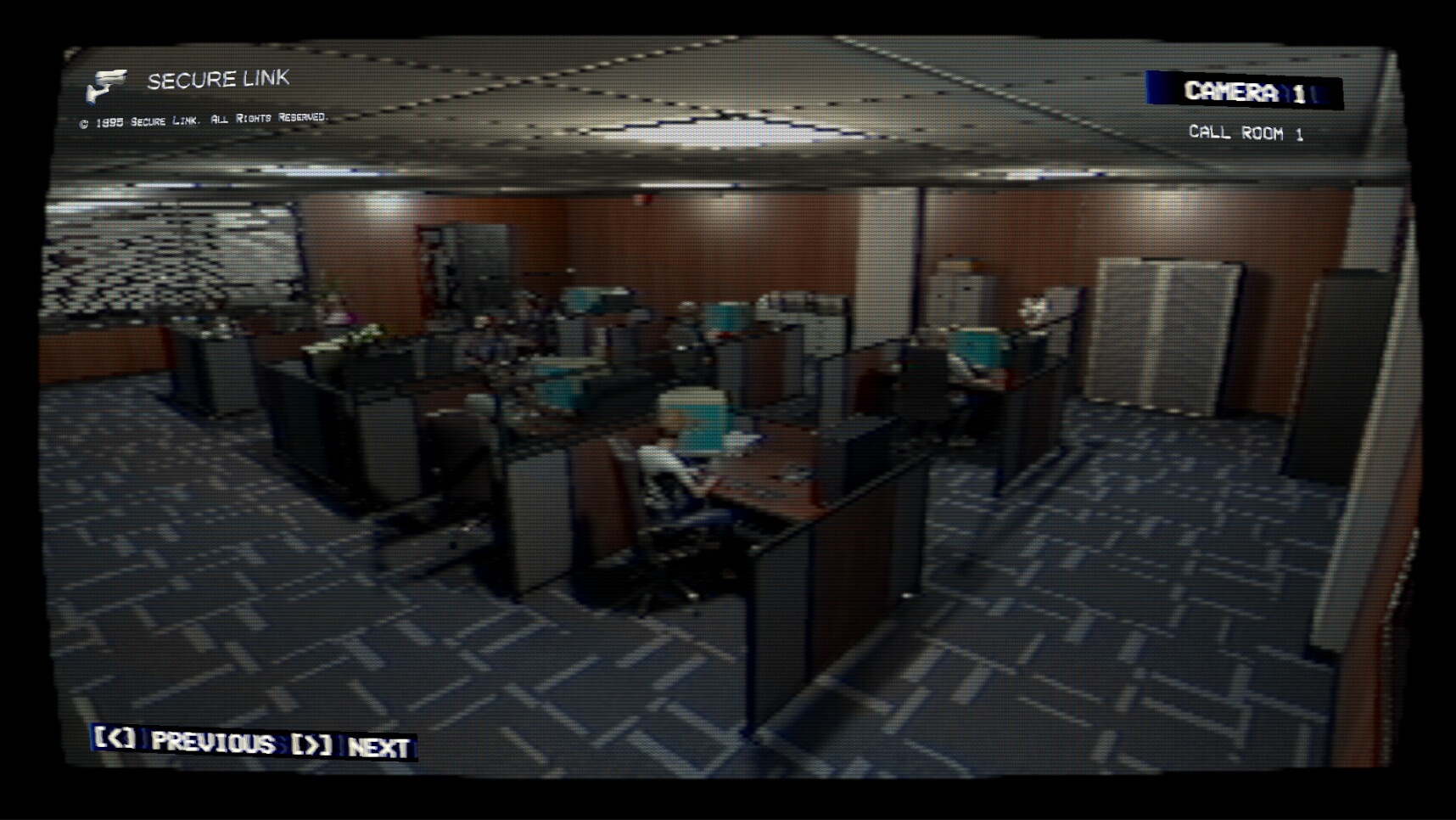
The Power Of The Mundane
For Fischer, the most powerful tool when making his game was “the juxtaposition of the mundane with horror.” He went on to say, “There’s a common trope in horror games that, at this point, is a Hallmark of indie horror games. Simple but effective, getting the player to complete a task such as taking out the garbage or washing dishes lowers their guard. With the guard down, it is much easier to scare the player.”
As our jobs grind us down in their monotony, it leaves room for the imagination to pry at our sense of safety. Working late at night, strange sounds can take on new meanings. A sudden change in the work environment leaves you wondering what’s different. In Lancaster Leak – Crisis at Call Center, a dangerous creature is moving around the building. So all of those errant noises that freak you out in a quiet, empty workspace at night suddenly mean something horrifying is coming. All those ordinary noises and changes during the day at work take on these scary potential meanings in the dark for my overactive imagination. This game just happens to make them real.

Stripped Of Humanity In Home Safety Hotline
That sense of the mundane and every day can be played up for terror, playing with our uneasiness or sense of safety in the familiar. Still, some developers also explore fears many of us feel around employment in their games. Home Safety Hotline is a game about working for a call center that happens to answer questions about cryptids and other monsters. While that sounds horrifying in and of itself, there is also something unsettling about how work tends to strip us of our sense of connection and humanity.
“I think workplace settings, particularly office workplaces, lend themselves well to a feeling of isolation despite being around others,” said Nick Lives of Night Signal Entertainment, creators of Home Safety Hotline. “While I haven’t worked at a call center myself, the horror stories told by my wife and other friends who have worked at these places have painted this distinct picture of it being a place where you are essentially expected to behave like a robot for hours on end in a small claustrophobic cubicle space. The fact that you are surrounded by other people is marred by the fact that they are all equally trapped in their space, which feels isolating in a prison-like way.”
He continued, saying, “One primary workplace feeling that helped shape some of the game’s design was that of disconnection from others. A friend once described one of their call center jobs to me where they were not even allowed to talk to customers with their real voice. Instead, their workplace had assigned employees a series of automatic bot responses to choose from. That and scope concerns directly inspired Home Safety Hotline’s interface-only interactions with customers. You cannot speak to customers in Home Safety Hotline, and you don’t even tell them to ‘hold’ with your voice; instead, a computer speaks for you and sends information packages in your stead.”
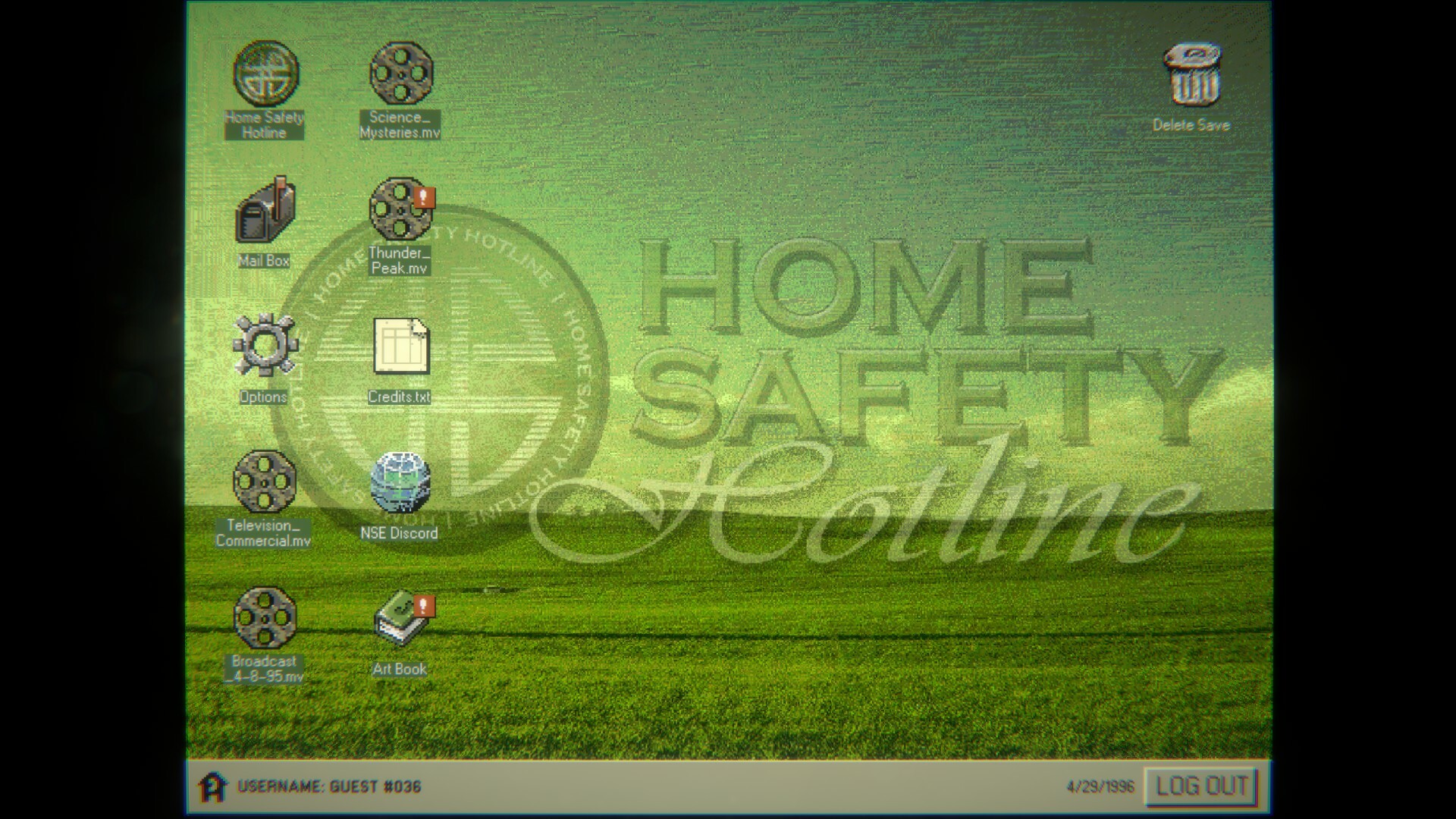
Toying With The Fear Of Being Alone
While dealing with calls about monsters is unsettling, what can be worse is that sense of being among so many people yet feeling utterly alone. Working with hundreds of people without feeling like we know or can talk to anyone is a strange kind of isolation, which many of us deal with daily. To do this while our whole life boils down to a handful of simple actions, carried out over and over again, is a daily kind of horror. While it’s not as overtly scary as helping people survive encounters with monsters, it’s genuinely more frightening to think about.
It’s that very ordinary sense of workplace fear that Interference: Dead Air toys with. In this game, you’re a security booth operator who has to help a colleague escape a facility under attack. However, you can only help them by giving them instructions over the radio since you can’t safely enter the facility yourself. You have to sit in your booth, look at maps, and offer guidance while praying your directions don’t get your colleague killed. It doesn’t sound very ordinary, yet it still draws from simple fears that many people feel while in the workplace.
“When we were working on concepts for what ultimately became Interference: Dead Air, the lonely security booth came out of a need to find a setting that we could reasonably exploit within the scope of our first video game,” said Jared Bohlken, one of the game’s co-creators. “However, upon reflection, I think we naturally gravitated towards the “workplace” due to its outsized presence in our own lives; the core development team, me included, were all relatively new to the workforce when we started developing the game, so the anxieties and insecurities surrounding that first real step into adulthood was very top of mind.”
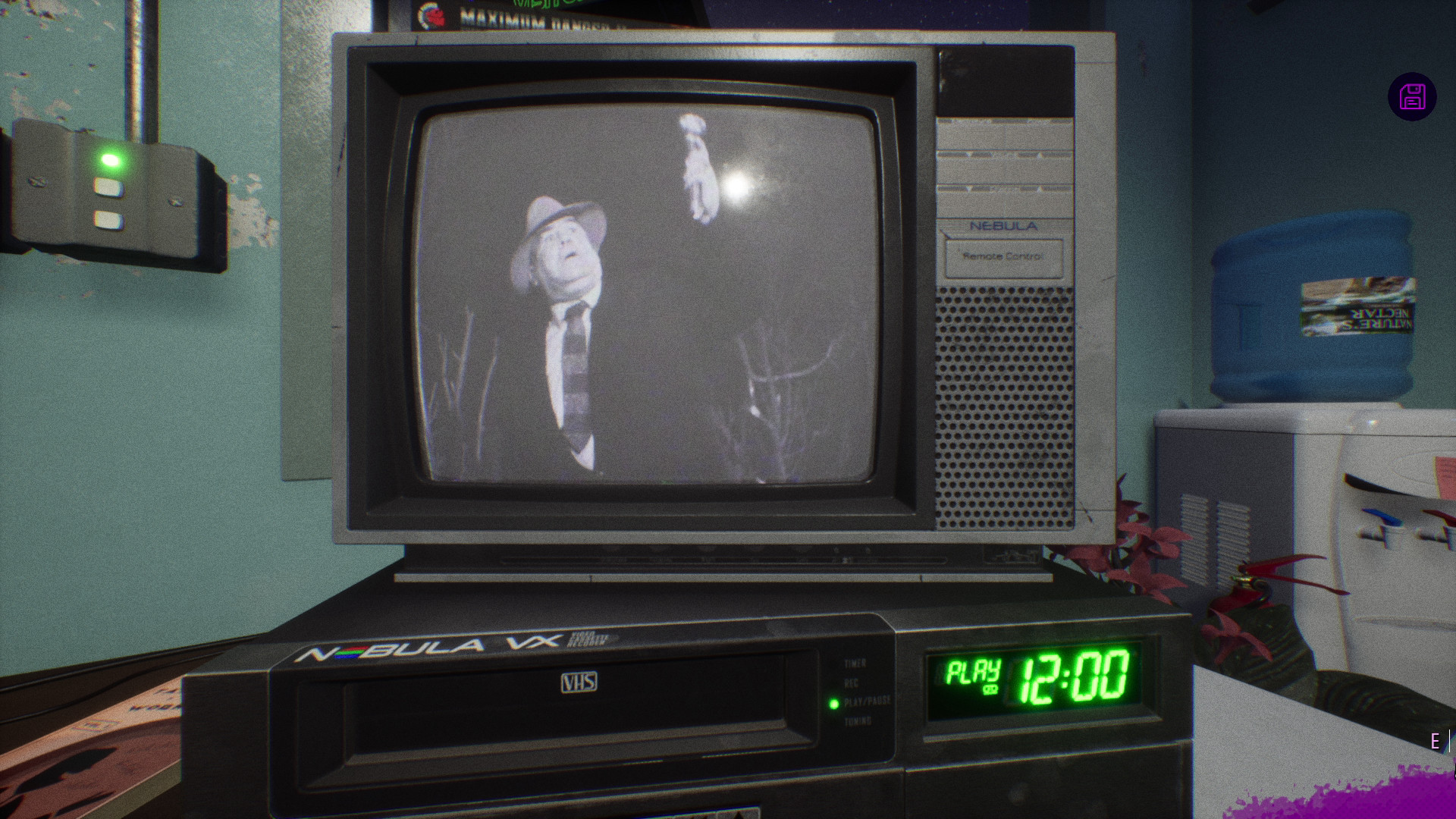
YOU Are Responsible
“Horror so often relies on subverting the familiar and comfortable. But what’s unique about the workplace is that for many people, it’s already a source of dread, even before you add monsters into the mix,” Bohlken continued. “Am I doing a good job? Will I still be here in a month? A year? Am I stuck here? Safe? Is this what I want to do for the rest of my life? Work forces us to confront those types of questions, and that’s already terrifying.”
The harm we can cause others throughout our work day is also explored Home Safety Hotline. “I think the primary workplace fear that Home Safety Hotline taps into is the fear of being given a lot of responsibility over the lives of others,” said Lives. “It’s even used as a tagline in one of our trailers— ‘You Will Be Held Responsible’. I think that fear comes up a lot in the workplace, and I related it to experiences I had working at a restaurant and realizing how important food safety regulations were. There’s something haunting and real about the idea that if I messed up, it wouldn’t just affect me; it could hurt someone.”
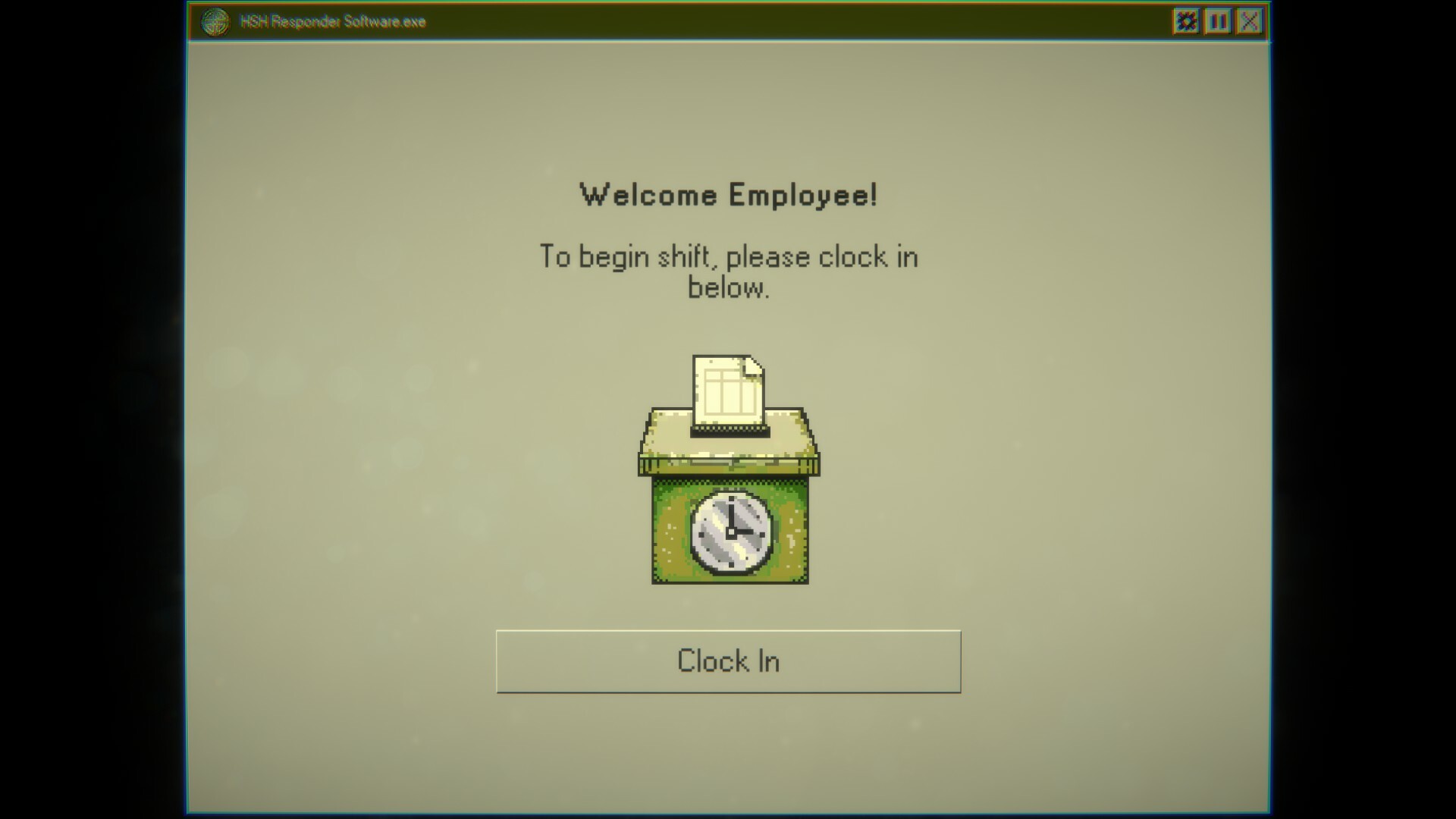
But you don’t even have to do a great deal of harm to lose your job and find yourself in a great deal of trouble—a fear we all know too well. And while the stakes are higher in this game, they still, at their core, draw from that sense that something catastrophic can happen due to a seemingly simple decision I made at work today.
Working Through Workplace Anxiety
“For me, I think the workplace setting creates an interesting sense of perspective,” said Brad Leyden, the other co-creator of Interference: Dead Air. “A lot of people spend so much time and mental energy worrying about mundane things as part of their job, and those stakes are very real and totally valid. Doing well at work provides a lifeline to so many people to maintain a status quo in their life outside of work. It can make something like sending an email feel like a life-or-death situation. Which might be pretty absurd in a vacuum to someone who doesn’t work your particular job and understand the context behind that email.”
Leyden continued, “So, I think taking those workplace anxieties so many of us experience but can’t necessarily explain to people outside our job and replacing them with much more concrete and immediately understandable horror game threats allows us to build on those workplace anxieties in a way that doesn’t rely on the context of any one job in particular. A horror game set in a workplace creates a universally stressful experience for all players that can be relatable to their own real work experiences, regardless of the specific nuances of their job.”
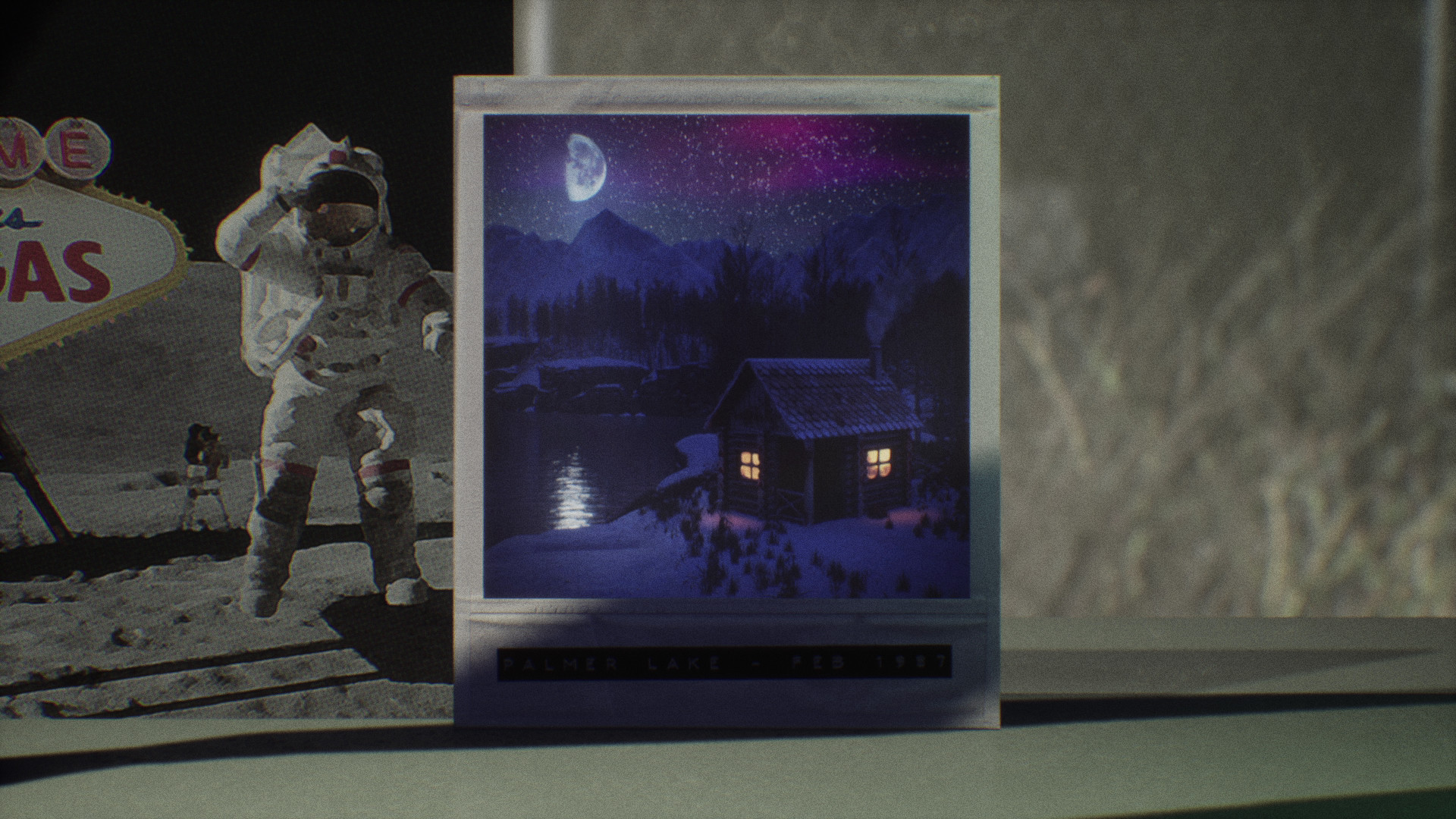
You’re In Danger!
And what about the very real dangers that we’ll be hurt or maimed while doing our jobs every day? While Lancaster Leak – Crisis at Call Center may involve supernatural horrors, the core of the experience lies in employers not taking safety seriously. “The main character of the game, Ashley Johnson, was a single mother forced to work overtime to make ends meet,” said Fischer. “After a seeming break-in occurred, the player reads an email from Ashley’s boss, essentially covering it up and asking her not to tell anyone. This plays into a common feeling around work: helplessness, frustration, and even anger at management for not taking employees’ well-being seriously. And after the Crisis occurs (without spoiling), something that could have been prevented, it’s just that much more tragic and frustrating to the player.”
Wasting Your Life Away
Even if our job isn’t killing or hurting us or someone else, there’s also the very real sense that we are wasting our lives away in service of some mundane job. We spend so much of our existence at these places whether we want to or not, which can come with disturbing questions about our lives and their meaning. The main character of Interference: Dead Air is looking to move on from their current job before this disaster hits, and while that may not be a major source of fear in the game, it still works away at that natural fear in many of us that our job is going to be our existence for the rest of our lives.
“With Interference: Dead Air, I think one of the biggest work anxieties we really tap into is the idea that your job might be a dead end,” said Leyden. “Something that’s a waste of time and a thing blocking you from living your life and doing what you want to do. Which I think is a relatable feeling for a lot of people. And a lot of people in that situation might spend time at work imagining some big, external thing that breaks them out of that rut and even longing for that on some level (who hasn’t had the occasional intrusive thought that getting hit by a bus on the way to work and spending a few weeks in the hospital might be preferable to making it to the office in one piece).”
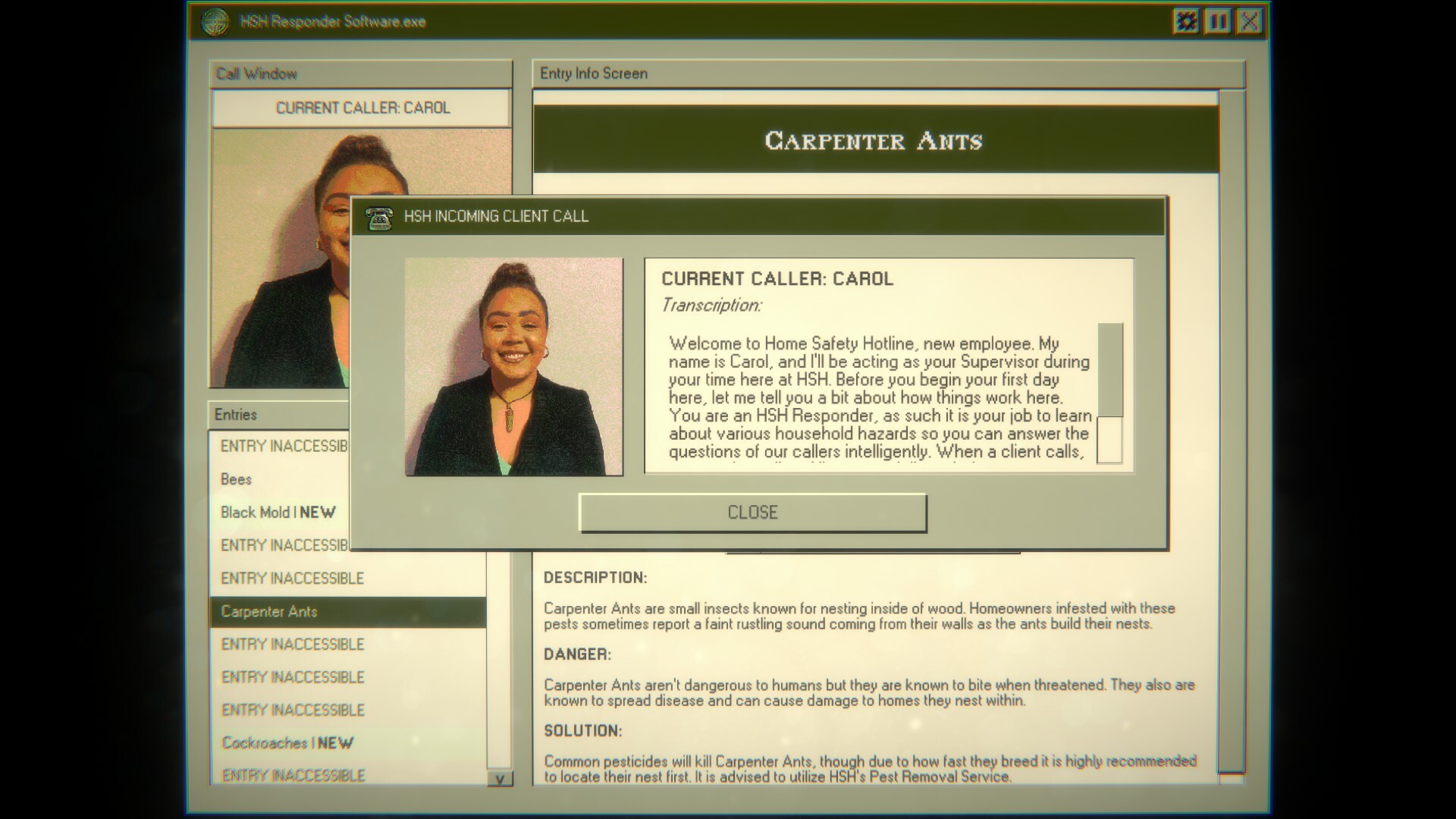
“So, we get to explore that in a very concrete way (with a supernatural twist),” he continued. “I think it really puts things into perspective that whether you’re pursuing your dream career or just making some extra cash on the side waiting for the next big thing, your work life can go sideways pretty quickly. So, it’s always good to keep some focus on the important things outside of work, like your relationships with other people, and not let your workplace stresses get in the way of that.”
Workplace Rage and Frustration
Kathinka also explores this idea throughout Good Job!, delving into rage related to this sense of your life being your work. “Back when I made that game, I just got used to my new office job. I wasn’t too happy with it back then… I kinda felt like, ‘So this is it? This is what I’ll have to do for the rest of my life?’ Also, it didn’t help that my direct coworker was an old, cynical guy retiring soon and only working in that job [Laughs],” said Kathinka. “The dread I felt back then was what inspired me to have a time-loop in the game – symbolizing how nothing in this monotone job ever changes, and nothing you do really has any significant impact.”
Good Job! represents this by killing your coworker over and over again in a seemingly endless time loop, using it as a means of fighting back against a sense that your life is out of your control. It’s all just spent in the pursuit of work, and nothing you do matters or will let you escape it. That inescapability can make every day of a job feel horrifying on its own, and Kathinka put those feelings to an angry yet unsettling work in her game.

Workplace As Literal Monster
In that monotony of the every day, we can also feel that we’re losing ourselves as we do the same job repeatedly. Interference: Dead Air explores the idea of a job consuming you. “The gradual erosion of hopes and dreams is a major theme of Interference: Dead Air,” said Bohlken. “The player character stands in for anyone confronted with the friction between ambition and reality, drifting between undesirable jobs until the pieces finally fall into place and unlock their dream career. Will that day come? Who knows! Luckily, fiction allows us to imagine those external forces we can’t control easily. And the supernatural is in some ways easier to understand than reality.”
He continued, “And that’s what I find truly insidious about the workplace: how quietly it can consume what makes us “us.” We may love our coworkers or even our work, but for many people, work is a means to an end – stepping stones to some lofty goal that might never arrive. Soon, years go by, yet here you are, and all those ambitions feel even further from reach. Mundanity and boredom are hidden parasites. The supernatural allows us to shine a light on that fact.”
Hitting Too Close To Home
With the exploration of these workplace fears through a lens of horror comes confronting the real horrors of employment. “I think just like with any horror, workplace horror reflects the real fears and anxieties people have about their jobs back at them, and that can be a cathartic and reflective experience,” said Lives. “For some, it can be a little too real. I’ve seen some people mention that they wouldn’t be able to play Home Safety Hotline because it too closely reflects their day-to-day call center experience. But I think for a lot of people, it’s helpful to put a face to those fears in order to confront them, and it lets them know they aren’t alone in feeling the way they do.”
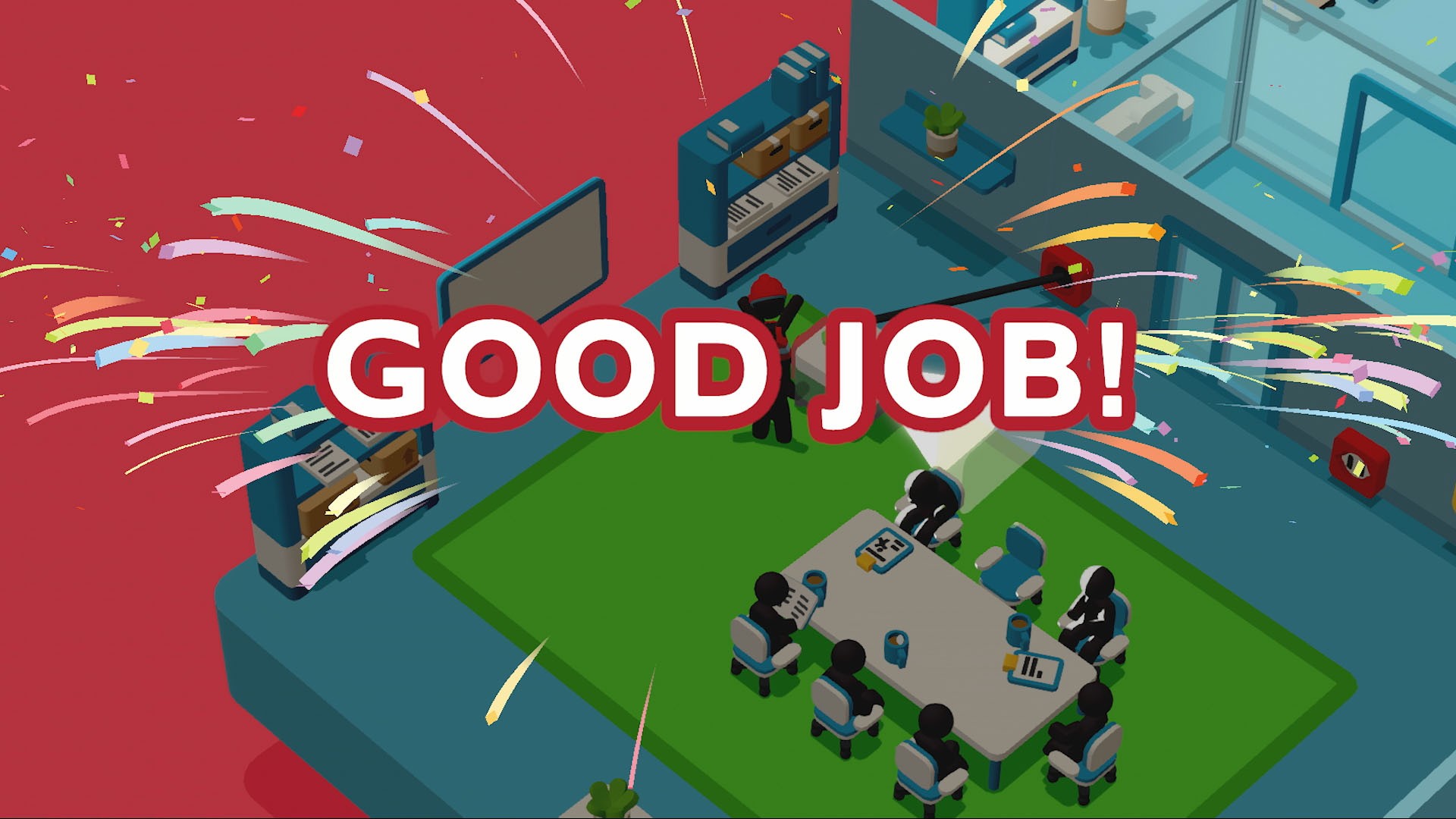
“I think that despite the vast variety of jobs that exist out there, a lot of underlying work anxieties come from a pretty universal place,” said Leyden. “So, our game might be based on the specific workplace of an isolated security booth, but it sort of taps into this shared human experience for everyone who has worked any job.”
“A horror game about a zombie outbreak on a faraway planet would certainly be tense and scary, but there’s this very clear separation from real life that keeps that setting firmly in the realm of fiction,” he continued. “And that can be great in a lot of cases and provide just the escapism that some players surely want at times! But a workplace horror game can hit a little closer to home in a way that can be harder to shake when you put the controller down.”
Work comes with so many anxieties about our lives and actions, and as work is a major part of our lives, we all experience these feelings to varying degrees. Even if monsters beyond imagination or supernatural horrors represent these fears, the fears they pull from are all very common. This results in strong horror experiences as we instantly connect with the terrors we feel about our jobs and the workplace. Work will always be a fertile ground for scaring people through that common fear so many of us feel.
Categorized: Editorials
